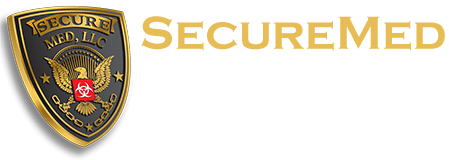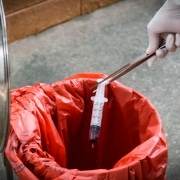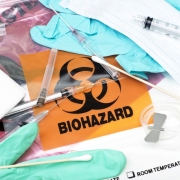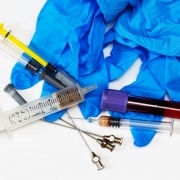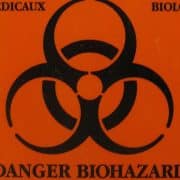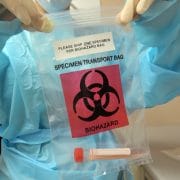The Clear Benefits of Biohazard Bags for Medical Waste
Regulated medical waste and hazardous waste typically make up 15-20 percent of the total waste generated by health care facilities. Healthcare facilities can generate up to 25 pounds of waste per day per patient, according to Sustainability Roadmap for Hospitals. That is an incredibly huge amount of waste being handled every day with the potential to spread infectious disease. Biohazard bags are just one small part of safe healthcare waste management, but here are a few reasons why they are so important.
Safety with biohazard bags
Biohazard bags “must be disposable and impervious to moisture, and have strength sufficient to preclude ripping, tearing, or bursting under normal conditions of usage and handling,” according to International Plastics. Unlike regular trash bags, biohazard bags are specially designed to ensure the safety of everyone who handles the waste.
Easy Identification
Regulations on biohazardous waste mandate that infectious waste be disposed of in specific types of bags and labeled clearly. “Biohazardous bags must be either RED or clear (orange bags are not allowed) and labeled with either the words ‘Biohazardous Waste,’ or with a biohazard symbol and the word ‘Biohazard,’” states International Plastics. “Clear biohazard bags are used for biohazardous waste that is not regulated. The Waste Management Group must document that a laboratory’s biohazardous waste is not regulated in order for a laboratory to use clear biohazard bags.” These visible warnings make biohazard bags easily identifiable as potentially hazardous. Medical waste management workers should be trained to recognize and properly handle biohazard bags.
Compliance
Government agencies responsible for regulating medical waste include OSHA, EPA and DOT. These agencies require compliance by the use of red, clearly labeled biohazard bags for the collection of waste contaminated with blood or OPIM (Other Potentially Infectious Material). Healthcare facilities are responsible for the proper handling of medical waste from generation to storage, to transportation to disposal. “Your medical waste is still your responsibility and a liability once your waste leaves your facility.”
Healthcare facilities are liable for what happens to their waste even after it leaves the facility. Therefore it is important to use high quality waste transportation and destruction services. We compiled a list of 8 Questions to Ask Before You Sign a Medical Waste Disposal Contract. At SecureMed, we meet or exceed all safety and compliance regulations. We take our job seriously, so you can focus on yours with peace of mind.
Contact SecureMed today for a free quote in the Huntsville and Birmingham, Alabama region or visit our website for more information on secure medical waste management.
